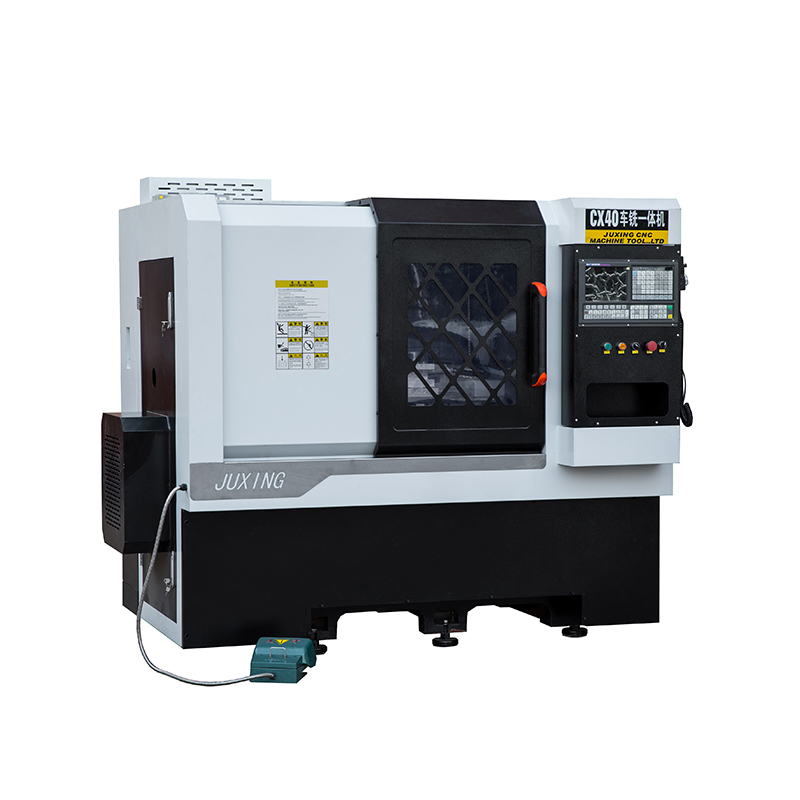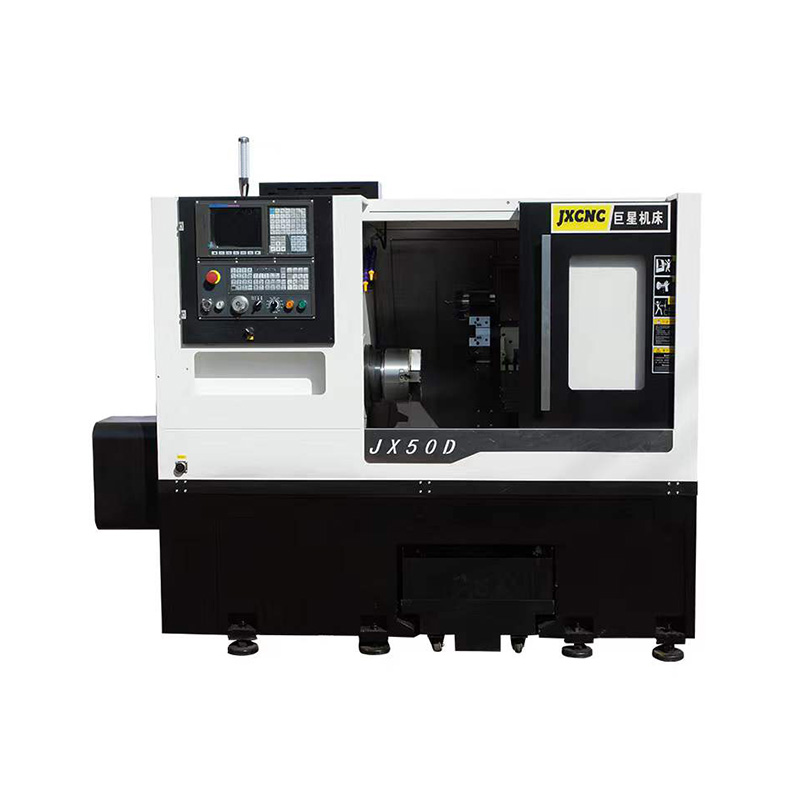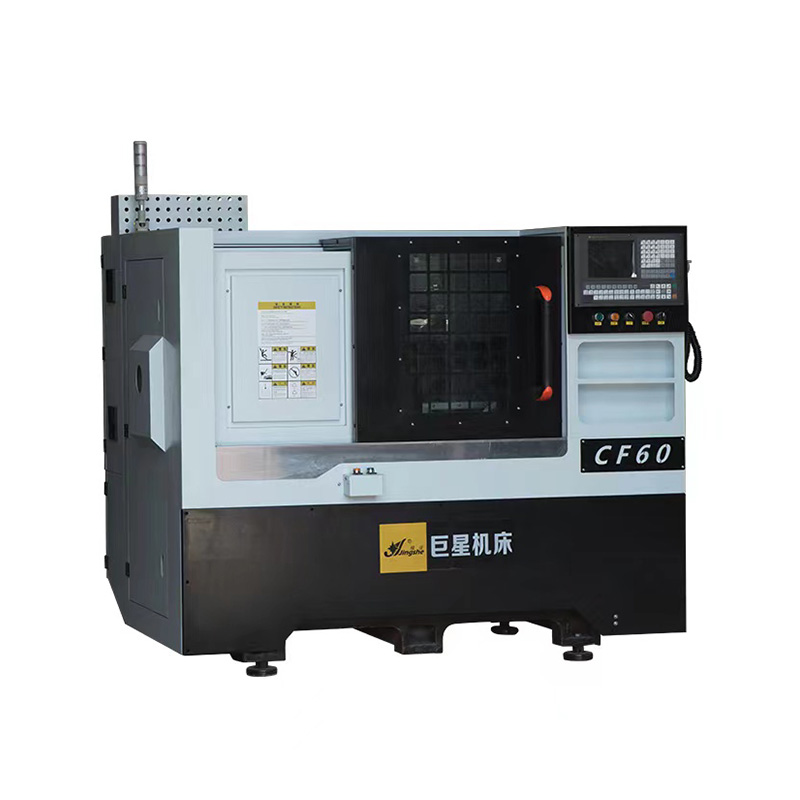CF32 Hydraulic Clamping CNC Polygon Turning Machine
Cat:Small Polygon Lathe
CF32 hydraulic clamping CNC polygon lathe is designed for milling small and medium-sized high-precision parts, which can mill square, octagonal, hexag...
See DetailsThe size of the CNC turning lathe factory is one of the important factors that influence its price. Larger machines capable of handling bigger workpieces or operating at higher speeds tend to be more expensive. A CNC turning lathe factory produces different models with varying bed lengths, swing diameters, and load capacities to accommodate specific machining needs. For example, a smaller CNC lathe suitable for precision work on small components may be more affordable than a large machine designed for mass production of larger parts.

The precision and accuracy of a CNC turning lathe are vital to its overall performance, and this also impacts its cost. Machines designed for high-precision work are often equipped with advanced features such as higher-resolution encoders, precision spindles, and improved control systems. These features ensure that the lathe can achieve tight tolerances, which is critical for industries that require high-quality, intricate parts. A CNC turning lathe factory that focuses on high-precision machines typically offers these models at a higher price due to the advanced technology and engineering required to build them.
The materials used to construct the CNC turning lathe have a significant effect on its price. Machines built from high-quality materials like hardened steel or cast iron tend to cost more due to the durability and rigidity these materials provide. These machines are better equipped to withstand the stresses of continuous operation, resulting in longer lifespans and greater reliability. The CNC turning lathe factory will select materials based on the intended application and the machine's expected workload, influencing the final price tag.
Automation plays a critical role in determining the price of a CNC turning lathe. Advanced automation features such as automatic tool changers, robotic arms, and integrated measuring systems can greatly increase the cost of the machine. These systems reduce the need for manual intervention and allow the machine to operate more efficiently, especially in mass production settings. CNC turning lathe factories that specialize in highly automated machines typically offer models with extensive automation capabilities, which adds to the cost.
The control system of the lathe, usually a CNC (Computer Numerical Control) system, is also a key component that influences the price. A more advanced CNC system, such as one with a larger screen, more functionality, and the ability to perform complex tasks, will generally cost more than a basic model. The level of sophistication in the control system is another area where the CNC turning lathe factory's design capabilities directly impact the final price.
Many CNC turning lathes come with customizable features to meet specific machining requirements. Features such as the type of tooling, spindle options, and coolant systems can affect both the functionality and the price of the machine. A CNC turning lathe factory often offers customization options based on the needs of the client, such as adding specific tooling for a particular part or integrating specialized software. While these features may increase the cost, they can also significantly enhance the machine's performance and versatility.
The brand reputation of the CNC turning lathe factory also plays a role in pricing. Established manufacturers with a reputation for producing reliable, high-quality machines typically charge a premium for their products. Additionally, the location of the CNC turning lathe factory can influence the price. Machines manufactured in regions with higher labor costs or stricter quality control standards may come at a higher price compared to those produced in countries with lower production costs.
The CNC turning lathe factory is central to determining the overall price of the machine. These factories invest heavily in research and development to create machines that meet the needs of different industries. The pricing structure of these factories can vary based on the machines they produce, with some focusing on high-end models that offer advanced features, while others specialize in more affordable, basic designs. The factory's scale of production, ability to source materials efficiently, and investment in technology all contribute to the pricing strategy.
Furthermore, the factory's relationship with suppliers and vendors can influence the cost of components used in the CNC turning lathe. Larger factories that purchase materials in bulk or have long-standing contracts with suppliers may be able to offer machines at a lower price, while smaller factories may have less leverage and charge more.

